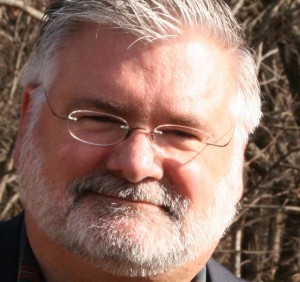By Mark Ellis

He grew up as a missionary kid in Hong Kong, where he observed Christian work at his parents’ feet. But globalization and technology changes in the ensuing years have completely altered his perspective on missions and led him to embrace changes some might consider radical.
“I grew up in the black and white world,” says T.J. Addington, the pastor, author and leader of ReachGlobal, the international mission of the Evangelical Free Church of America (EFCA). “The world was big, travel was expensive, and there was one way of doing missions,” he notes.
Most of the missionaries he observed went to one destination and stayed there. As the world underwent dynamic shifts through globalization in the 1970s and the PC revolution of the ’80s and ’90s, he saw the need to modify his views to fit the times.
“I’m not critical of the way missions was done, but I knew the world had changed and often mission agencies and the church are decades behind the change,” he says. “Mission agencies are very aware they’re in the whitewater of change, but they don’t know what to do about it.”
As Addington accepted his position at EFCA nine years ago, he saw the need to “take the mission out of the black and white world and into the color world.”
The result of these changes have been striking. “Indigenous groups are knocking on our door today because of the shifts we have made where we are no longer a controlling entity,” he notes. “We develop equal partnerships.”
“We don’t own anything, control anything, or count anything as ours,” he says. “We’re there to lift up our national partners, to help them become everything they can be.”
While Christian work often found alignment around authority structures and strategy, Addington promotes something very different. “We have pressed down authority to the lowest level possible and eliminated as much bureaucracy as possible.
These are the nine critical shifts identified by Addington:
Shift #1: From being primarily doers—to being primarily equippers
Shift #2: From being in charge—to equal partnerships
Shift #3: From owning and controlling—to “we own nothing, control nothing and count nothing as ours”
Shift #4: From Western missionaries—to global missionaries
Shift #5: From dependencies—to self–sufficiency
Shift #6: From addition—to multiplication
Shift #7: From competition—to cooperation
Shift #8: From an emphasis on my brand—to His brand
Shift #9: From agency based missions—to church/agency synergy
Reactions to Addington’s approach have been mixed. “Some were skeptical and said it was the flavor of the month,” he says. “Some said ‘I don’t want to play in your sandbox.’”
“The majority are still trying to figure out what the shifts are and what they mean,” he adds.
While Addington leads the missions effort of the EFCA, they no longer plant EFC churches exclusively. “We’re not monogamous,” he says. “We look for healthy, independent, reproducing, indigenous churches.”
ReachGlobal has wrapped their arms around some God-sized goals. Their 10-year plan seeks to impact 100 million people with the Gospel by 2017. They also want to see 100 ‘Acts 19’ locations emerge where the Gospel penetrates entire cities and regions.
“If you have good partners, you can see tremendous multiplication take place,” he notes. “Our ministry is not based on what we can do, it’s based on what we can help others do better than we can do.”
They flew in many national leaders from around the world when they unveiled their new approach in 2007. After their presentation, their partners from Africa stayed up all night discussing it. In the morning, they said, “We understand it’s not you and us, but it’s us together.”
They decided to form their own sending agency called ReachAfrica and told Addington, “We’re praying about how many of the 100 million we need to claim.” Since 2007, they have trained thousands of pastors and church planters, according to Addington.
Addington was overjoyed by the response. “They are living out our ultimate dream, which is to see indigenous movements raising up their own missionaries, so missions becomes all people reaching all people.”
“We’re trying to cast a vision for the church to move away from competition, to move toward cooperation everywhere in the world. That’s my mantra.”
T.J. Addington is the author of four books, “High Impact Church Boards,” ” Leading From The Sandbox,” “When Life Comes Undone” and “Live Like You Mean It” – available from NavPress. In his spare time T.J. is an avid fly fisherman.




We can do more together than we can alone. That is what God sees as a Circle4Success.
I agree with T. J. and started eleven years ago to work alongside with National leaders in N. E. India in Manipur. I have seen the wonderful results of joint ventures and the encouraging results of letting Nationals do the leading, teaching, preaching, building. I fly to India in Feburary to fund an outrech among Hindu with Hindu music (Evangelical) and a former Hindu now a powerful Evangelist. It works. This is my 11th trip to Manipur.Thanks for your artical. Ted Seymour. President: Active Outeach Mission Fund Inc. Boca Raton FL USA.
Starting three years ago, I begain training/equipping ministers and church leaders and their wives to be “Responsive Disciples” and carry out 2 Timothy 2:2.
I am a retired educator. With the help of four native trainers, we have certified 2,500 to be instructors of a 12 course curriculum for practical Christian living and service. We have conducted most of our trainging in “Bible College.”
I agree 100% with the nine critical shifts. I have been doingn most of them.
HMM
Comments are closed.